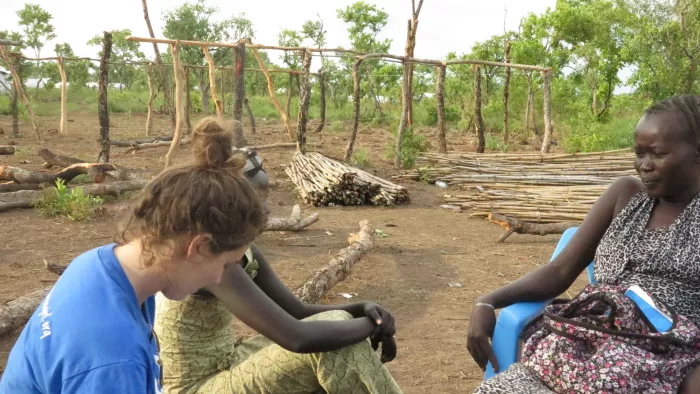ABOUT THE PROJECT
BACKGROUND INFORMATION
Public health emergencies in Ethiopia are often exacerbated by inadequate preparedness and contingency planning, leading to increased morbidity and mortality of the population.
The influx of refugees from South Sudan to Ethiopia’s Gambella region, also means the mitigation of public health emergencies is more difficult for local authorities and organisations.
In addition, timely collection of information is poor (the Ethiopia Public Health Institute, EPHI, suggest effective reporting to be as low as 50%), which significantly compromises the ability of organisations to take prompt action to save lives.
Consultation with EPHI on the gap in public health emergency preparedness and response has identified the Gambella region as a priority.
AIMS
The aim of this project was to reduce morbidity and mortality rates caused by public health emergencies in Ethiopia’s Gambella region.
The project created a system that allowed humanitarians to share effective and timely health information. This helped strengthen early warning and preparedness mechanisms and enabled organisations to anticipate and respond to health emergencies.
The project aimed to;
1. Increase the number of health facilities that can cope with health emergencies
2. Improve the capacity of health staff to manage emergencies
3. Create functional health information systems, preparedness plans and coordination mechanisms during emergencies.
OUTCOMES
Patients in Gambella’s health facilities were the primary beneficiaries for this project, benefitting from improvements such as better equipped laboratories. Capacity development initiatives supported the work of more than 150 health institutions and more than 1,125 health staff. Improved drug supply chains to local health facilities, better equipped facilities and improved mapping of community health issues resulted in a prompt response to health emergencies.
This project recognised the importance of the role of women in public health emergencies. Women comprised of at least fifty per cent of all trainees, all rapid response teams (RRT) and preparedness committees included women, and encouraged the role of women leaders.
WHO WAS INVOLVED?
The project was delivered through a consortium led by Christian Aid; and included Amref Health Africa (AMREF), National Meteorology Agency (NMS) and the Federal Ministry of Health/ Gambella Region Health Bureau.
FUNDING
The 24 month project was funded with £500,000 from UK Aid, part of the Disaster and Emergencies Preparedness Programme (DEPP).
FIND OUT MORE
Read the project one-pager
Christian Aid and DEPP in Ethiopia
LEARNING
Learning review, output 1: How has Shifting the Power influenced local and national partner's response to emergencies?
Learning review, output 2: Increasing the voice and the influence of local and national NGOs
Protection Mainstreaming Training Package - English
Protection Mainstreaming Training Package - Urdu
To read more about the learning gained from the delivery of this project and other DEPP projects, please visit disasterpreparedness.ngo
Key contacts
TAMRAT TEREFE, SENIOR PROGRAMME OFFICER, CHRISTIAN AID
SIIRI MAKELA,PROGRAMME FUNDING OFFICER, CHRISTIAN AID

